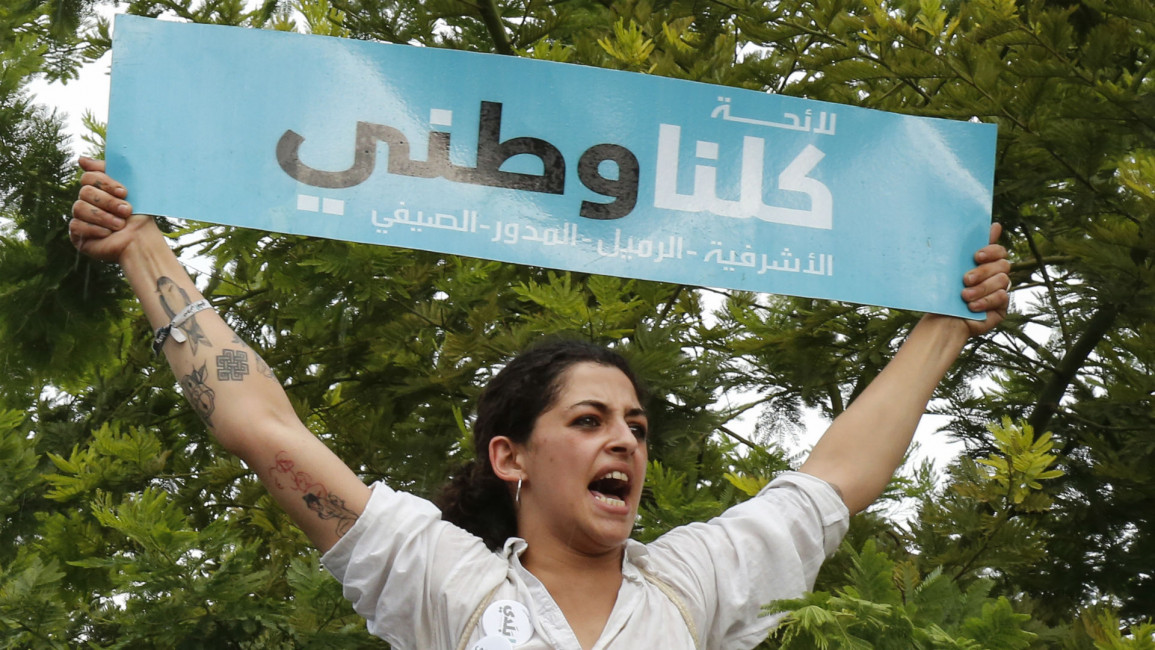Lebanon's Hizballah hails 'great political and moral victory'
Lebanon's shia party Hizballah claimed victory on Monday after the country's elections, saying that the results had legitimised the military branch and left Saudi-backed Prime Minister Saad Hariri as the main loser.
Hassan Nasrallah, Hizballah leader, commented before results were even out, describing it as "a great political and moral victory for the resistance option that protects the sovereignty of the country".
"The make-up of the new legislative chamber represents a guarantee and a great strength to protect this strategic choice and to protect the golden equation - the army, the people and the resistance," Nasrallah said.
The number of Hizballah lawmakers in the 128-seat parliament may not increase but pre-electoral tactics have secured it enough allies to withstand political challenges on strategic issues, including calls for it to disarm.
Before the results were officially announced, Hariri told reporters his party had won 21 seats, a drop from the 33 it held in the outgoing legislature.
"We were betting on a better result and a wider bloc with better Christian and Shia participation," admitted Hariri, whose party nonetheless remains one of the largest in parliament, facilitating his return as prime minister to form the next government.
"My hand is extended to every Lebanese who participated in the elections to preserve stability and create jobs," Hariri said in a televised statement on Monday.
The polls were also marked by a low turnout of 49.2 percent, and the emergence of a civil society movement which is challenging Lebanon's oligarchs and was set to break into parliament for the first time.
Results announced late Monday by the interior ministry confirmed the trend, though vote counting had not yet ended in one electoral district.
The United Nations urged Lebanese politicians to act responsibly to protect Lebanon's stability.
"We hope that all Lebanese political stakeholders will continue to act responsibly in the days following polling to protect Lebanon's stability, which should include the swift formation of a government," said UN spokesman Stephane Dujarric.
The unofficial tally also shows at least one candidate from a civil society list - journalist Paula Yaacoubian - won a seat in the capital, an area traditionally monopolised by established political parties.
The biggest winner so far is the right-wing Christian Lebanese Forces, which almost doubled its number of seats to 15. The group has vowed to combat the country's rampant corruption.
Lebanon has often been a scene where the rivalry between the region's two heavyweights Iran and Saudi Arabia has played out, but their political clients in this election seemed content to maintain the status quo.
In line with the "national pact" dating from independence in 1943, the president must be a Maronite Christian, the prime minister a Sunni Muslim and the parliament speaker a Shia.


![President Pezeshkian has denounced Israel's attacks on Lebanon [Getty]](/sites/default/files/styles/image_684x385/public/2173482924.jpeg?h=a5f2f23a&itok=q3evVtko)



 Follow the Middle East's top stories in English at The New Arab on Google News
Follow the Middle East's top stories in English at The New Arab on Google News


